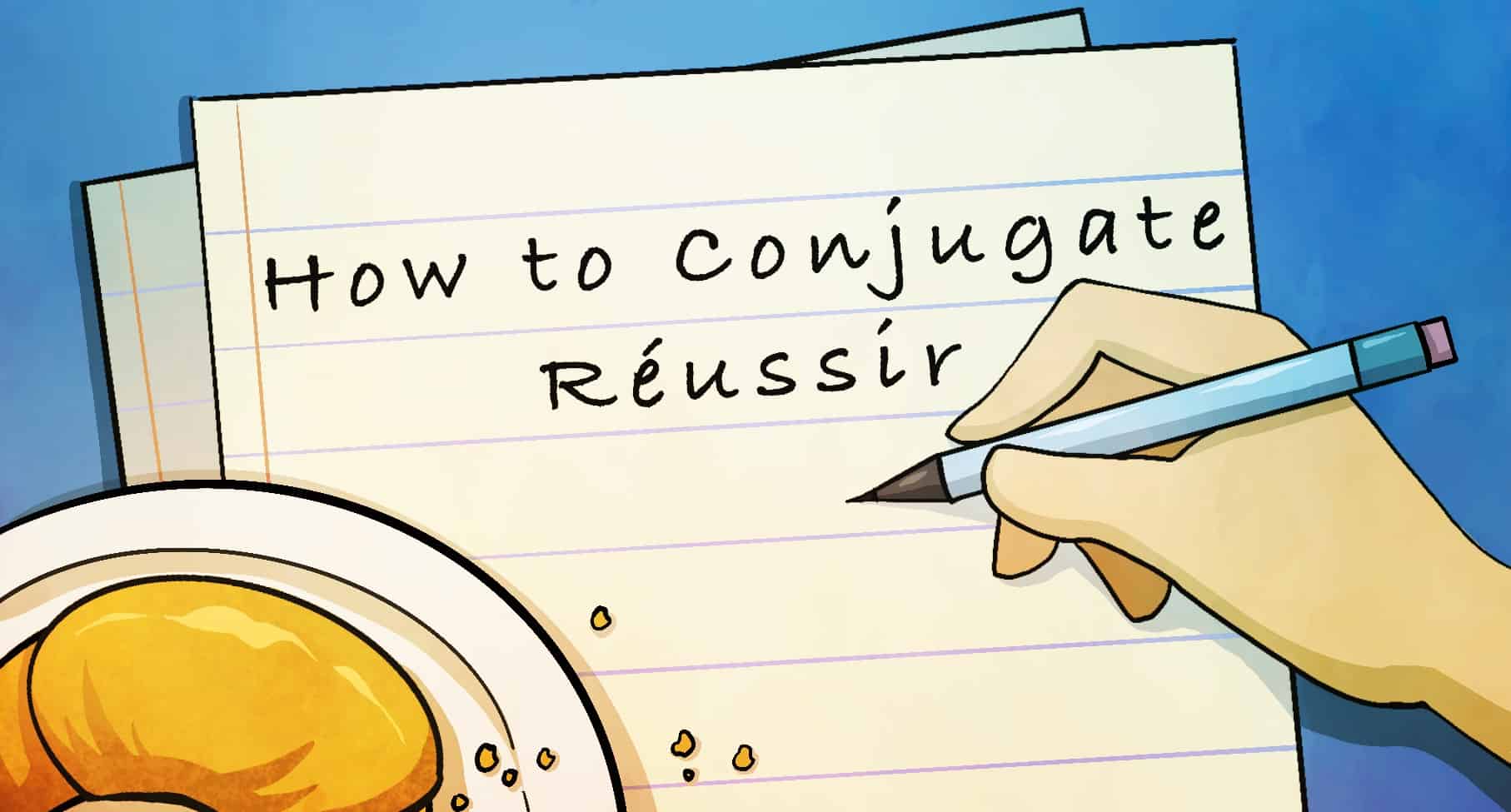This guide provides a deep dive into the conjugation of the French verb “réussir,” meaning “to succeed” or “to turn out.” Mastering this verb is crucial for expressing achievement and describing outcomes in French. We’ll cover everything from basic conjugation to nuanced usage, common mistakes, and even explore related vocabulary.
Understanding the Nuances of Réussir
Réussir is more than just a simple translation of “to succeed.” It carries subtle connotations of outcome, effort, and sometimes even luck, enriching its meaning beyond a basic definition. Its frequent use in everyday French conversation, including various idiomatic expressions, makes mastering réussir a key to fluency.
Conjugating Réussir: A Step-by-Step Guide
While generally categorized as a regular second-group verb, réussir has a slightly irregular past participle (réussi), which often trips up learners. Let’s break down the conjugation across various tenses and moods:
Present Tense: Describing Current Success
The present tense forms the foundation for understanding réussir. It describes current actions or habits of succeeding.
| Person | Réussir |
|---|---|
| Je | réussis |
| Tu | réussis |
| Il/Elle/On | réussit |
| Nous | réussissons |
| Vous | réussissez |
| Ils/Elles | réussissent |
Past Tense: Recounting Past Achievements
Here we’ll focus on the passé composé, the most common past tense for describing completed actions. Remember the irregular past participle, “réussi”.
| Person | Avoir + Réussi |
|---|---|
| Je | ai réussi |
| Tu | as réussi |
| Il/Elle/On | a réussi |
| Nous | avons réussi |
| Vous | avez réussi |
| Ils/Elles | ont réussi |
For actions that were ongoing or habitual in the past, the imparfait is used. However, this tense is less common with “réussir” as it typically describes a specific accomplishment.
Future Tense: Expressing Future Aspirations
The futur simple is your go-to tense for discussing future success.
| Pronoun | Conjugation |
|---|---|
| Je | réussirai |
| Tu | réussiras |
| Il/Elle/On | réussira |
| Nous | réussirons |
| Vous | réussirez |
| Ils/Elles | réussiront |
The futur proche (near future) can also be used to express imminent success, though it focuses more on the intent rather than the guaranteed outcome.
Conditional Mood: Exploring Hypothetical Successes
The conditional mood allows for expressing hypothetical situations or polite requests related to success. Dive into the intricate world of the saber subjunctive (in a different linguistic context, but conceptually helpful) for a deeper understanding of expressing hypothetical scenarios.
| Pronoun | Conjugation |
|---|---|
| Je | réussirais |
| Tu | réussirais |
| Il/Elle/On | réussirait |
| Nous | réussirions |
| Vous | réussiriez |
| Ils/Elles | réussiraient |
Subjunctive Mood: Expressing Wishes and Uncertainties
The subjunctive mood, often tricky for learners, is essential for expressing desires, doubts, and uncertainties related to success.
| Pronoun | Conjugation |
|---|---|
| Je | réussisse |
| Tu | réussisses |
| Il/Elle/On | réussisse |
| Nous | réussissions |
| Vous | réussissiez |
| Ils/Elles | réussissent |
Imperative Mood: Encouraging Success
Use the imperative mood for commands related to succeeding. Remember to adjust your tone according to the context.
| Pronoun | Conjugation |
|---|---|
| Tu | réussis |
| Nous | réussissons |
| Vous | réussissez |
“Avoir” or “Être”? Unveiling the Auxiliary Verb Mystery
Réussir typically uses “avoir” as its auxiliary verb in compound tenses like the passé composé. However, in the passive voice (e.g., “The exam was passed”), “être” becomes the auxiliary, and the past participle agrees with the subject. For example, “L’examen a été réussi.” This distinction highlights a shift in meaning, emphasizing the state of being successful rather than the act of succeeding. Some experts suggest this subtle shift reflects a focus on the result rather than the effort.
The Preposition “à”: Adding Precision to Success
“Réussir à” indicates succeeding in a specific activity. This seemingly small preposition adds a layer of nuance, specifying the area of achievement. For instance, “J’ai réussi à l’examen” (I succeeded in/on the exam) pinpoints the success to the exam itself. Without “à,” “j’ai réussi” implies a more general sense of success.
Expanding Your Success Vocabulary
French offers a wealth of synonyms for réussir, each with subtle shades of meaning. “Achever” (to complete), “aboutir” (to lead to), “parvenir” (to reach/achieve), and “réaliser” (to realize/achieve) all relate to success, but their usage depends on the specific context. Unlock the secrets of the reír conjugation (though not a direct synonym, it helps illustrate the power of nuanced verb choice).
Pronunciation and Ongoing Learning
Correct pronunciation is vital. “Réussir” is pronounced roughly as “ray-oo-seer,” with the “r” being a guttural French “r.” Remember that language is dynamic, and even expert opinions on grammar can differ. While this guide represents current understanding, ongoing linguistic research may further refine our comprehension of “réussir.” Don’t hesitate to explore further and embrace the continuous journey of language learning.
- Sept 31 Myth: Unveiling Calendar Secrets - March 18, 2025
- How Long & Till December 18, 2025: Accurate Countdown Guide - March 18, 2025
- Discover Japanese Artists: A Complete History - March 18, 2025

















1 thought on “Réussir Conjugation: A Comprehensive Guide (All Tenses & Moods)”
Comments are closed.